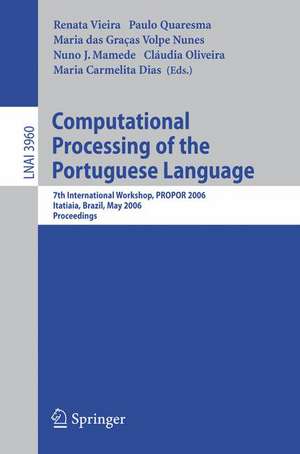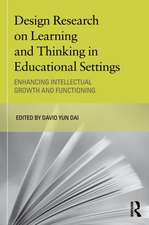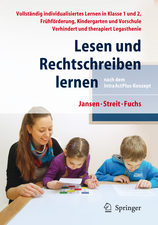Computational Processing of the Portuguese Language: 7th International Workshop, PROPOR 2006, Itatiaia, Brazil, May 13-17, 2006, Proceedings: Lecture Notes in Computer Science, cartea 3960
Editat de Renata Vieira, Paulo Quaresma, Maria das Graças Volpe Nunes, Nuno J. Mamede, Cláudia Oliveira, Maria Carmelita Diasen Limba Engleză Paperback – 5 mai 2006
Din seria Lecture Notes in Computer Science
- 20%
 Preț: 1061.55 lei
Preț: 1061.55 lei - 20%
 Preț: 307.71 lei
Preț: 307.71 lei - 20%
 Preț: 438.69 lei
Preț: 438.69 lei - 20%
 Preț: 579.30 lei
Preț: 579.30 lei -
 Preț: 410.88 lei
Preț: 410.88 lei - 17%
 Preț: 427.22 lei
Preț: 427.22 lei - 20%
 Preț: 596.46 lei
Preț: 596.46 lei - 15%
 Preț: 448.04 lei
Preț: 448.04 lei - 20%
 Preț: 353.50 lei
Preț: 353.50 lei -
 Preț: 389.49 lei
Preț: 389.49 lei - 20%
 Preț: 309.90 lei
Preț: 309.90 lei - 20%
 Preț: 645.28 lei
Preț: 645.28 lei - 20%
 Preț: 763.23 lei
Preț: 763.23 lei - 15%
 Preț: 580.46 lei
Preț: 580.46 lei - 20%
 Preț: 310.28 lei
Preț: 310.28 lei - 20%
 Preț: 655.02 lei
Preț: 655.02 lei - 20%
 Preț: 1183.14 lei
Preț: 1183.14 lei - 20%
 Preț: 340.32 lei
Preț: 340.32 lei -
 Preț: 449.57 lei
Preț: 449.57 lei - 20%
 Preț: 591.51 lei
Preț: 591.51 lei - 18%
 Preț: 938.83 lei
Preț: 938.83 lei - 20%
 Preț: 337.00 lei
Preț: 337.00 lei - 20%
 Preț: 649.50 lei
Preț: 649.50 lei - 20%
 Preț: 607.40 lei
Preț: 607.40 lei - 20%
 Preț: 1414.79 lei
Preț: 1414.79 lei - 20%
 Preț: 1024.44 lei
Preț: 1024.44 lei - 20%
 Preț: 583.40 lei
Preț: 583.40 lei - 20%
 Preț: 453.32 lei
Preț: 453.32 lei - 20%
 Preț: 575.49 lei
Preț: 575.49 lei - 20%
 Preț: 1075.26 lei
Preț: 1075.26 lei - 20%
 Preț: 585.88 lei
Preț: 585.88 lei - 20%
 Preț: 825.93 lei
Preț: 825.93 lei - 17%
 Preț: 360.20 lei
Preț: 360.20 lei - 20%
 Preț: 763.23 lei
Preț: 763.23 lei - 20%
 Preț: 340.32 lei
Preț: 340.32 lei - 20%
 Preț: 504.58 lei
Preț: 504.58 lei - 20%
 Preț: 369.13 lei
Preț: 369.13 lei - 20%
 Preț: 580.93 lei
Preț: 580.93 lei - 20%
 Preț: 343.62 lei
Preț: 343.62 lei - 20%
 Preț: 350.21 lei
Preț: 350.21 lei - 20%
 Preț: 583.40 lei
Preț: 583.40 lei - 20%
 Preț: 583.40 lei
Preț: 583.40 lei - 15%
 Preț: 438.59 lei
Preț: 438.59 lei - 20%
 Preț: 341.95 lei
Preț: 341.95 lei - 20%
 Preț: 238.01 lei
Preț: 238.01 lei - 20%
 Preț: 538.30 lei
Preț: 538.30 lei
Preț: 387.96 lei
Nou
Puncte Express: 582
Preț estimativ în valută:
74.24€ • 79.38$ • 61.90£
74.24€ • 79.38$ • 61.90£
Carte tipărită la comandă
Livrare economică 17 aprilie-01 mai
Preluare comenzi: 021 569.72.76
Specificații
ISBN-13: 9783540340454
ISBN-10: 3540340459
Pagini: 292
Ilustrații: XII, 276 p.
Dimensiuni: 155 x 235 x 15 mm
Greutate: 0.41 kg
Ediția:2006
Editura: Springer Berlin, Heidelberg
Colecția Springer
Seriile Lecture Notes in Computer Science, Lecture Notes in Artificial Intelligence
Locul publicării:Berlin, Heidelberg, Germany
ISBN-10: 3540340459
Pagini: 292
Ilustrații: XII, 276 p.
Dimensiuni: 155 x 235 x 15 mm
Greutate: 0.41 kg
Ediția:2006
Editura: Springer Berlin, Heidelberg
Colecția Springer
Seriile Lecture Notes in Computer Science, Lecture Notes in Artificial Intelligence
Locul publicării:Berlin, Heidelberg, Germany
Public țintă
ResearchCuprins
Summarization.- Modeling and Evaluating Summaries Using Complex Networks.- SABio: An Automatic Portuguese Text Summarizer Through Artificial Neural Networks in a More Biologically Plausible Model.- Resources.- Building a Dictionary of Anthroponyms.- REPENTINO – A Wide-Scope Gazetteer for Entity Recognition in Portuguese.- Translation.- Using Natural Alignment to Extract Translation Equivalents.- Open-Source Portuguese–Spanish Machine Translation.- Weighted Finite-State Transducer Inference for Limited-Domain Speech-to-Speech Translation.- Named Entity Recognition.- A Golden Resource for Named Entity Recognition in Portuguese.- Functional Aspects in Portuguese NER.- SIEMÊS – A Named-Entity Recognizer for Portuguese Relying on Similarity Rules.- Tools and Frameworks.- Tools for Nominalization: An Alternative for Lexical Normalization.- A Framework for Integrating Natural Language Tools.- Methods and Tools for Encoding the WordNet.Br Sentences, Concept Glosses, and Conceptual-Semantic Relations.- A Multi-agent Approach to Question Answering.- Systems and Models.- Adaptation of Data and Models for Probabilistic Parsing of Portuguese.- A Set of NP-Extraction Rules for Portuguese: Defining, Learning and Pruning.- Resolving Portuguese Nominal Anaphora.- Design of a Multimodal Input Interface for a Dialogue System.- Review and Evaluation of DiZer – An Automatic Discourse Analyzer for Brazilian Portuguese.- Classroom Lecture Recognition.- Information Extraction.- Semi-supervised Learning for Portuguese Noun Phrase Extraction.- Automatic Extraction of Keywords for the Portuguese Language.- Semi-automatically Building Ontological Structures from Portuguese Written Texts.- Speech Processing.- On the Use of Machine Learning and Syllable Information in European PortugueseGrapheme-Phone Conversion.- A Model to Computational Speech Understanding.- Phonetic Sequence to Graphemes Conversion Based on DTW and One-Stage Algorithms.- Lexicon.- Very Strict Selectional Restrictions: A Comparison Between Portuguese and French.- Towards a Formalization of Tense and Aspect for the Generation of Portuguese Sentences.- The Need for Application-Dependent WSD Strategies: A Case Study in MT.- A Lexical Database of Portuguese Multiword Expressions.- Morpho-syntactic Studies.- Dedicated Nominal Featurization of Portuguese.- Part-of-Speech Tagging of Portuguese Based on Variable Length Markov Chains.- From Syntactical Analysis to Textual Segmentation.- Syntactical Annotation of COMPARA: Workflow and First Results.- Web, Corpus and Evaluation.- A Complex Evaluation Architecture for HAREM.- What Kinds of Geographical Information Are There in the Portuguese Web?.- Corpus-Based Compositionality.











